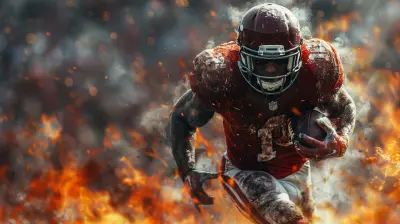The Roots of Baseball: From Stickball to America’s Pastime
28 July 2025
Walk into any ballpark today, and the air is thick with nostalgia. The crack of the bat, the roar of the crowd, the smell of popcorn—it’s a sensory experience steeped in tradition. But have you ever stopped to think where this beloved game actually came from? Baseball didn’t just pop into existence with well-manicured diamonds and million-dollar contracts. It has roots that dig deep into American soil—and even deeper into time, long before the MLB was even a dream.
Let’s take a time machine ride back to the gritty beginnings. This is the story of how baseball grew from humble street games into the soul of a nation.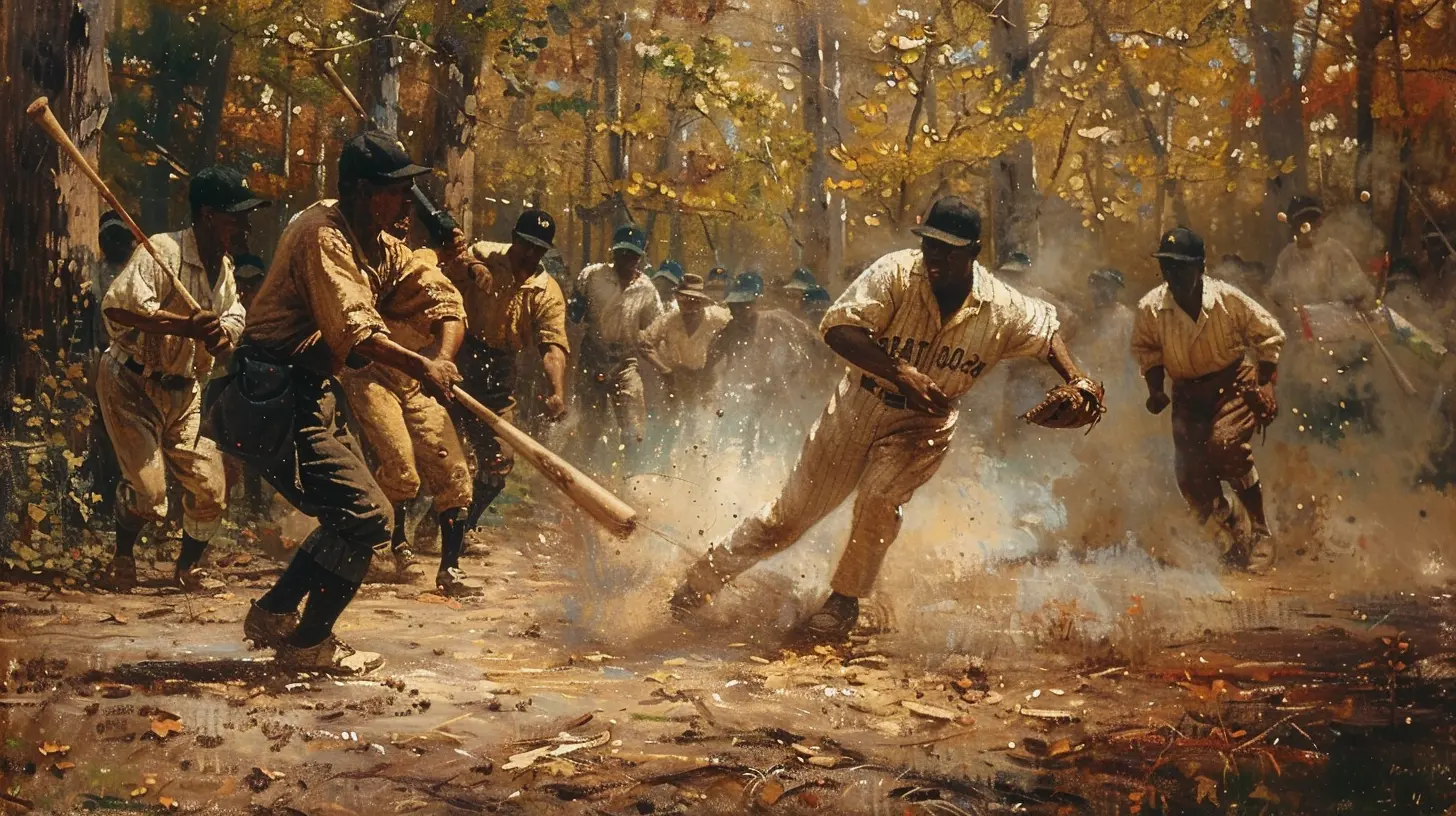
Back When "Baseball" Wasn't Baseball
Before baseball had its name, rules, and legends, people—kids mostly—were already swinging sticks at balls. It wasn’t called baseball; it didn’t even follow a specific format. These were unscripted, chaotic games played on vacant lots, cobbled streets, and grassy fields. It was more “make-it-up-as-you-go” than “let’s-follow-the-rulebook.”This early form? Stickball.
What Even Is Stickball?
Stickball was the streetwise cousin of modern baseball, popular in cities like New York and Philadelphia. Picture this: a bunch of kids, a broomstick, and a rubber ball. No gloves, no umpires, no problem. You hit the ball, you run. Car bumpers? Bases. Fire hydrants? Home plate. If the mailman got in the way…well, too bad.It was raw. It was loud. And it was pure fun.
Stickball gave birth to some of the core mechanics we recognize today: hitting, running, scoring. But it wasn’t organized—and that’s where the evolution starts to get interesting.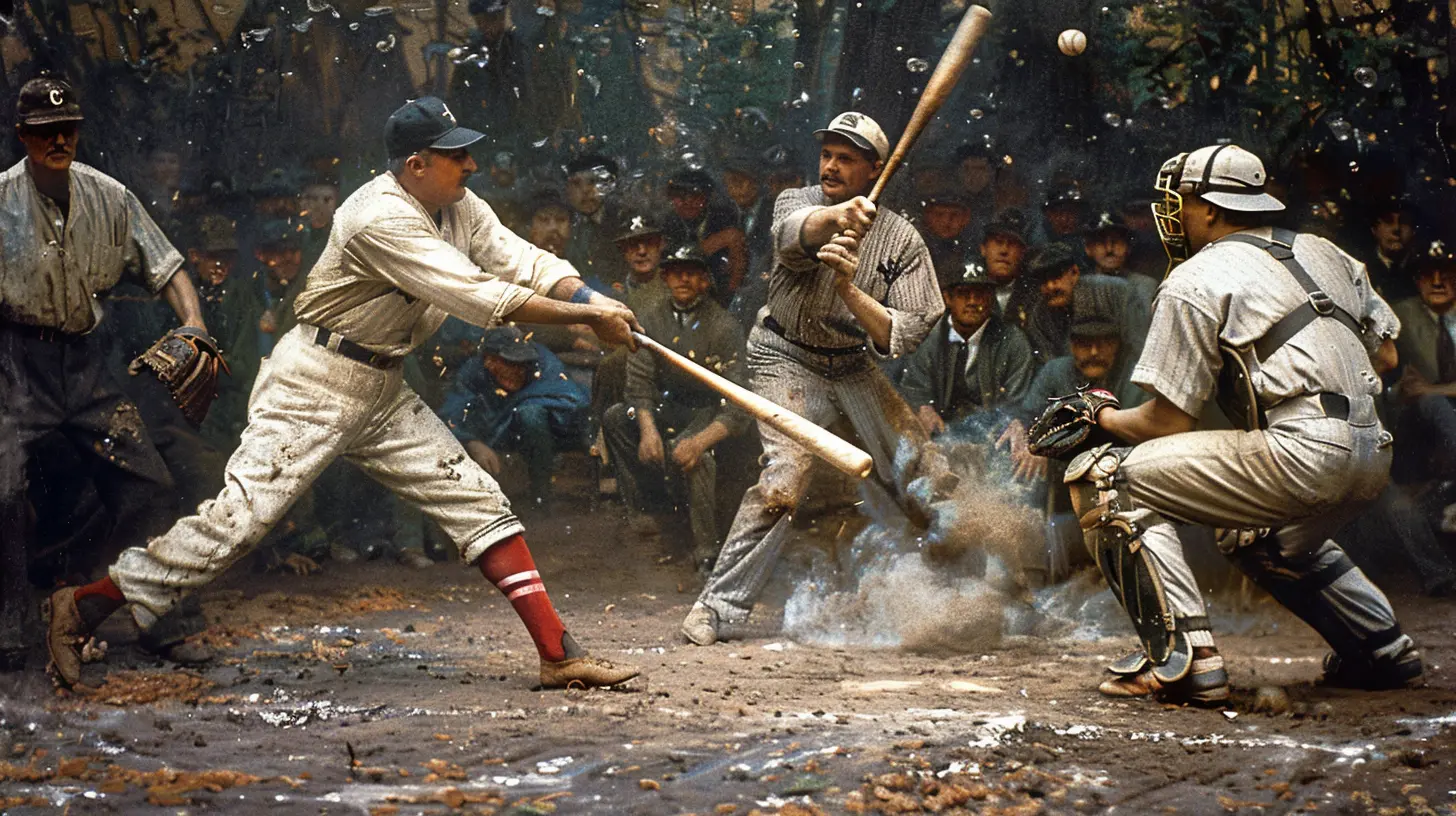
Baseball’s Murky Origins: Myths vs. Truth
You’ve probably heard the story about Abner Doubleday inventing baseball in Cooperstown, New York, in 1839, right? Yeah… about that. It's kinda bogus. As neat and patriotic as that tale sounds, history says otherwise.The British Connection
Reality check—baseball owes a lot to British bat-and-ball games like rounders and cricket. English immigrants brought those games to America, and they slowly morphed into what we now call baseball.Rounders is an especially close cousin. It featured teams, a batter, fielders, and a circuit of bases. Sound familiar?
So, no, Abner Doubleday didn't invent baseball. But the game did evolve in the U.S., shaped by local culture and innovation.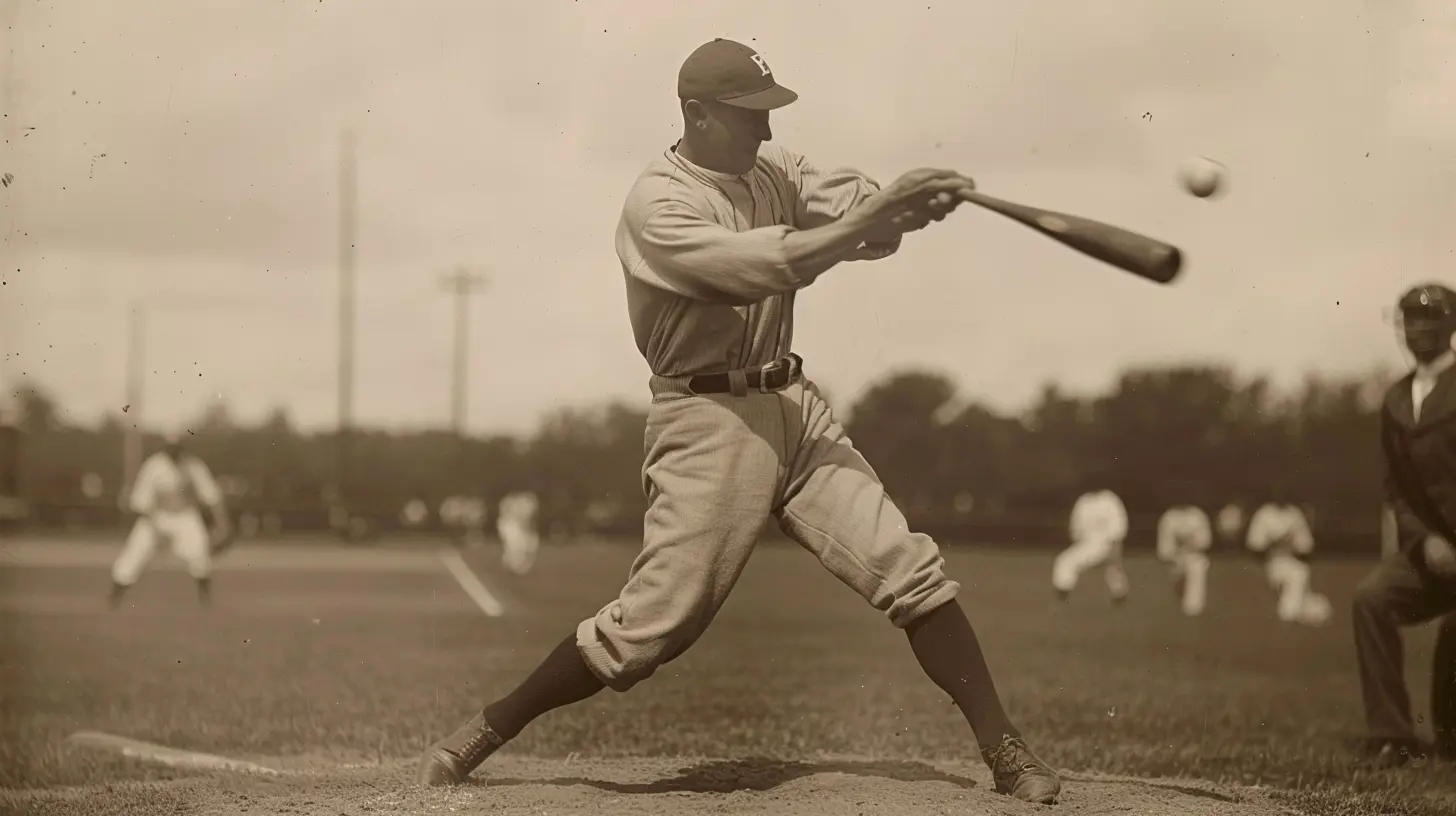
The Rise of Town Ball
Before the rules were standardized, various regions had their own version of bat-and-ball games. One of the most popular? Town Ball.What Was Town Ball?
Think of town ball as a rough blueprint for modern baseball. There were teams, bases, a bat, and a ball—but the rules were flexible, and pitches were often lobbed underhand. Even the number of players could change depending on how many people showed up.In some versions, you could actually get a runner out by pegging them with the ball. Yup, dodgeball meets baseball. Probably explains why it didn’t last long—ouch.
Though chaotic, town ball inspired community spirit and competition. Local pride was on the line, and games would draw crowds. Sound familiar?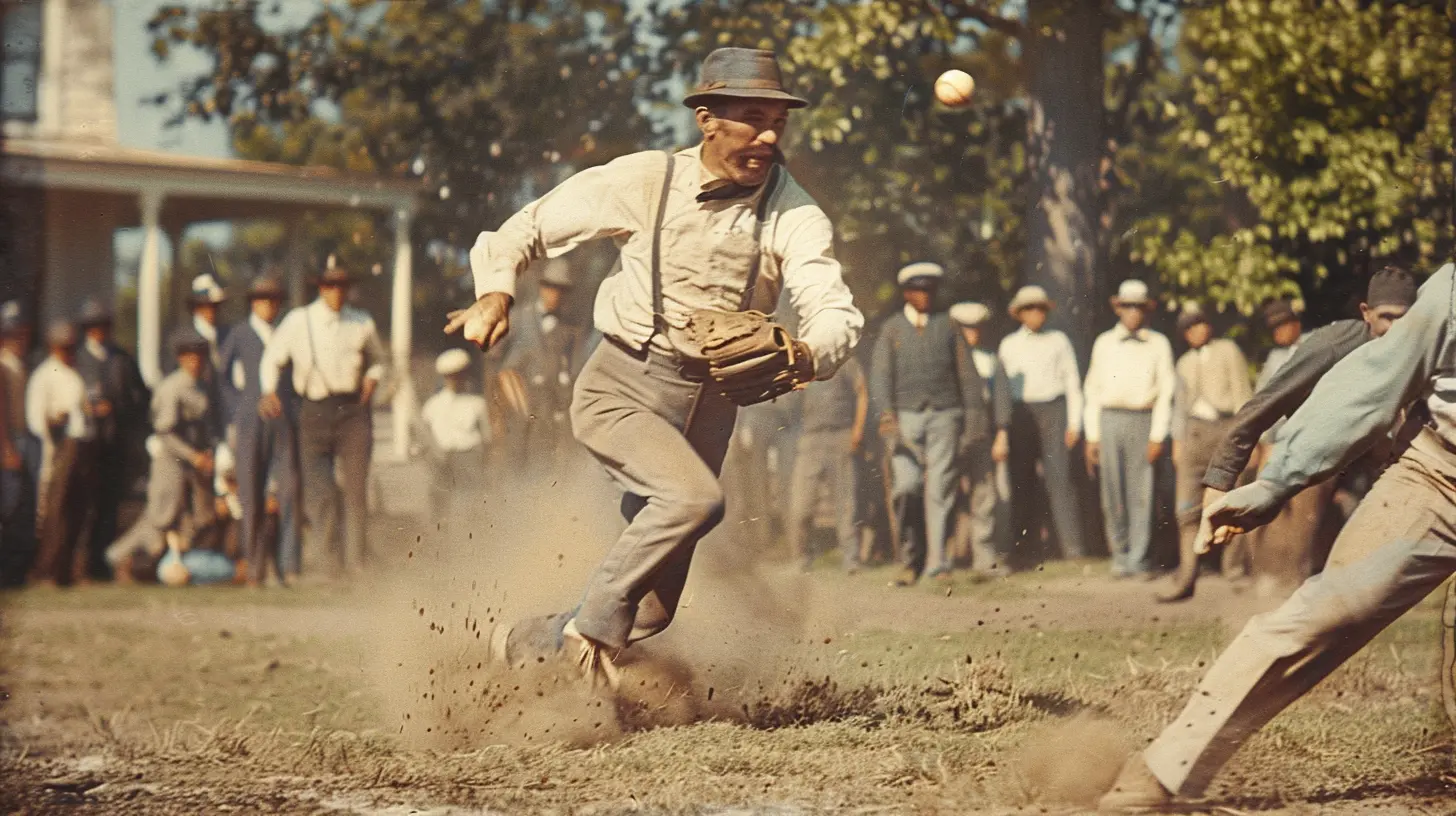
The Knickerbocker Rules: Order Out of Chaos
The year 1845 is a biggie in baseball history. Enter the Knickerbocker Base Ball Club of New York. These guys were all about structure. They wanted to take the wild play out of town ball and turn it into something recognizable.The Birth of Real Baseball Rules
Alexander Cartwright, one of the Knickerbockers, drafted the first official rules of modern baseball. A few things they introduced that still exist today:- Three-strike rule
- Diamond-shaped field
- Bases 90 feet apart
- No pegging (thank goodness)
That same year, the first officially recorded baseball game under these rules was played. Spoiler: the Knickerbockers lost.
Still, it was a turning point. Finally, baseball had a skeleton. Now, all it needed was flesh—players, teams, fans, and national attention.
The Civil War Effect: Baseball Goes National
You wouldn’t think a brutal conflict like the Civil War would help a sport explode in popularity, but that’s exactly what happened.Soldiers’ Pastime
During downtime, Union and Confederate soldiers alike would pick up bats and gloves to play a few innings of baseball. It was a form of escape—a way to forget about the chaos surrounding them.When the war ended, these soldiers carried the game back home to every corner of the country. Suddenly, baseball wasn’t just a regional pastime. It was becoming a national obsession.
Turning Pro: The Business of Baseball
By the late 1860s, baseball had outgrown its amateur roots. People were getting good—really good—and fans wanted more. Naturally, money followed.The First Professional Team
In 1869, the Cincinnati Red Stockings became the first openly professional baseball team. They didn't hide the fact that they paid players. This was controversial at the time, but also inevitable.Once one team went pro, others had to follow or fall behind. Thus began the era of organized professional baseball…and the birth of what would become Major League Baseball.
Baseball Becomes “America’s Pastime”
By the early 1900s, baseball was more than just a game. It was a cultural phenomenon.Why Baseball Captured America’s Heart
Baseball hit at just the right time. America was growing—immigrants were pouring in, cities were booming, and people craved entertainment. Baseball offered a slice of unity. No matter where you came from, you could rally around the home team and argue about stats at the barber shop.It was slow enough to chat over, but exciting enough to jump out of your seat. It felt American—strategic, unpredictable, and full of personality.
Plus, heroes like Babe Ruth gave the game flare. Newspapers covered every at-bat like it was headline news. Kids imitated swings in backyards, entire cities shut down for World Series games. Baseball wasn’t just a sport—it was part of American identity.
The Negro Leagues and the Fight for Inclusion
Of course, the full story of baseball isn't all home runs and sunshine. For decades, Black players were excluded from Major League Baseball. That didn’t mean they didn’t play—far from it.The Power of the Negro Leagues
Black athletes formed their own leagues, and let’s be honest—they were full of raw talent. These players didn’t just match MLB talent—they often surpassed it.Names like Satchel Paige and Josh Gibson are legendary. They drew massive crowds, broke records, and proved that skill knows no color.
Finally, in 1947, Jackie Robinson broke the color barrier when he joined the Brooklyn Dodgers. It was a seismic shift—not just in baseball, but in American society.
Modern Baseball: A Global Game
Today, baseball is light-years away from those street-corner stickball games. It’s a multibillion-dollar industry with stars from around the world. Japan, the Dominican Republic, Venezuela, Korea—you name it, they play it.But for all of its evolution, baseball still has that old-school charm. The same field layout. The same thrill when a ball clears the fences. The same ritual of singing “Take Me Out to the Ball Game.”
It’s changed, sure—but it’s never lost its soul.
Why The Roots Still Matter
So, why dig into the roots of baseball?Because understanding where it came from helps us appreciate what it is today. It didn’t start in stadiums. It started in empty lots and dirt fields. It was built by kids, soldiers, immigrants, underdogs, and pioneers.
Baseball isn’t just America’s pastime because someone said so. It earned that title—through sweat, struggle, and a whole lot of swinging sticks.
Final Thoughts
Baseball is more than stats and scores. It's a narrative that stretches back generations. From makeshift games on city streets to grand stages under stadium lights, it reflects the American experience—imperfect, evolving, and full of character.So next time you're watching a game, think about those stickball kids playing for nothing but pride, and smile. You're witnessing the latest chapter in a story that's been centuries in the making.
all images in this post were generated using AI tools
Category:
Sports HistoryAuthor:

Nelson Bryant
Discussion
rate this article
1 comments
Stephen Hubbard
Great article! It’s fascinating to see how stickball laid the groundwork for baseball. Understanding its humble beginnings adds depth to the game's rich history. Thanks for sharing these insights!
August 15, 2025 at 1:00 PM

Nelson Bryant
Thank you for your kind words! I'm glad you found the article insightful and enjoyed exploring the origins of baseball.

